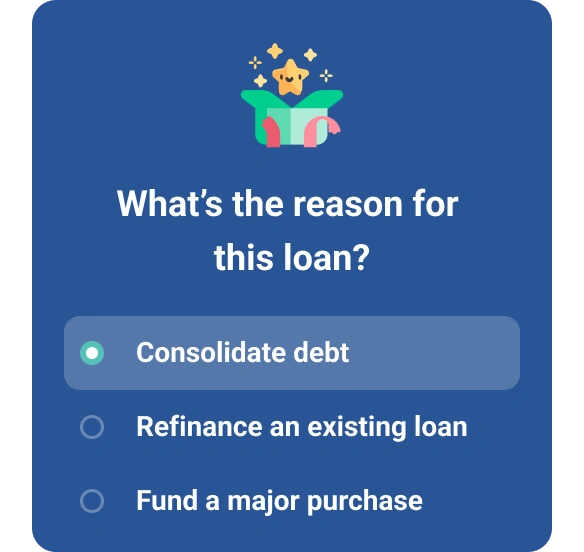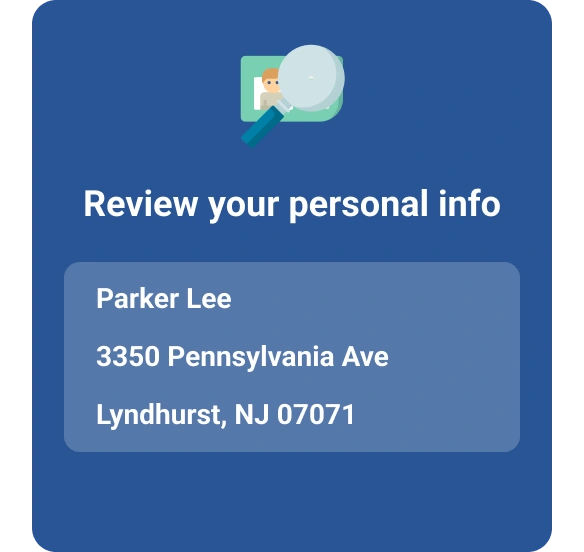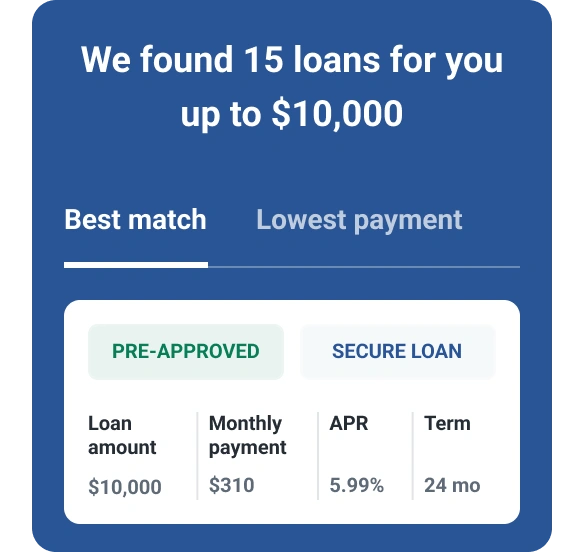Do Personal Loans Hurt Your Credit?
Quick Answer
Applying for a personal loan will lead to a hard inquiry that can temporarily impact your credit score. The largest negative impact would occur if you miss payments, since payment history is the biggest single factor in your credit score. But you may see credit benefits from a personal loan too.

Applying for a personal loan can temporarily impact your credit score slightly as a result of a hard inquiry appearing on your credit report. If you're approved for a loan, your outstanding debt will increase and the average age of your accounts will decrease, which could also affect your credit. But the largest negative impact would occur if you miss payments on your loan, since payment history is the biggest single factor in your credit score.
That doesn't mean you should avoid pursuing a personal loan, though. Responsibly managing a personal loan can, in fact, improve your credit if you make regular on-time payments. Before borrowing, understand and plan for the potential credit impact so that you can protect your score throughout the process.
Does Applying for a Personal Loan Hurt Your Credit?
Applying for a personal loan can cause your credit score to drop by a few points. When you apply for any type of credit, including a loan or credit card, the lender typically requests access to your credit report so it can assess the risk of nonpayment based on your credit history. That request for access leads to a hard inquiry on your credit report, which will remain there for up to two years.
While a hard inquiry for a personal loan can trigger your credit scores to drop slightly (usually less than five points), your scores are likely to recover within a few months to one year—and the impact will decrease with time as you continue to make timely bill payments.
Learn more: How Long Do Hard Inquiries Stay on Your Credit Report?
How Can a Personal Loan Hurt Your Credit Score?
Beyond a potential initial dip from a hard inquiry, there are two other key ways a personal loan can have a negative effect on your credit score.
Missed Payments
A personal loan can hurt your credit if you miss even a single monthly payment. A missed payment will have a more significant impact on your credit than other credit behavior, since payment history accounts for the largest share (35%) of your FICO® ScoreΘ, the score used by 90% of top lenders.
If you're able to stay on top of your personal loan payments but they stress other areas of your financial life, you could also be at risk of making late payments on other accounts and hurting your score.
Added Outstanding Debt
Added debt from a personal loan contributes to the "amounts owed" category of your credit score, which accounts for 30% of your FICO® Score. Merely owing money doesn't mean you're considered a risky borrower—and it won't sink your score—but high balances on credit accounts and the presence of loans with large balances left to pay off can negatively impact your credit.
Additionally, while your debt-to-income ratio (DTI) (the percentage of your income that goes toward debt payments) isn't included in credit score calculations, a high DTI can make it difficult to qualify for certain types of loans. When you apply for a mortgage, for example, lenders look closely at DTI when making credit decisions.
Shorter Average Account Age
Adding a new loan to your credit profile means your average account age will decrease. The credit scoring models will also take into account the fact that you recently opened an account. Length of credit history makes up 15% of your credit scores, so this won't have as large an impact as a missed payment or additional debt.
To help keep your score strong, consider keeping open your oldest credit card accounts and merely using them for small recurring expenses that you immediately pay off. Maintaining old accounts can offset the credit score impact of a new account.
Learn more: What Happens if You Don't Pay Back and Personal Loan?
Ways to Limit a Personal Loan's Negative Credit Impact
If you decide to apply for a personal loan, take these steps to limit its effect on your credit score:
- Take advantage of prequalification. Many personal loan providers offer the option to prequalify for a loan on their websites. You'll enter basic information about your income, debt and assets, and you'll learn if you're eligible for the loan plus your likely rate and terms. The lender conducts a soft inquiry only, which won't affect your credit score. From there, you can submit a full application once you find a lender you want to work with, which avoids multiple hard inquiries. If you want to submit multiple official personal loan applications, it's best to do so within 14 days. That way, the credit scoring algorithm will recognize that you're rate shopping, or comparing rates across a range of loans within the same category, and treat the applications as one hard inquiry.
- Make all payments on time. Paying every loan and credit card bill by the due date is essential to maintaining a strong credit score. If 100% of your personal loan payments are made on time, the loan can help future lenders see that you're a responsible user of credit.
- Pay off the loan in full. In addition to making on-time payments, it's important to make every payment until the load is paid off. But paying off a personal loan early won't necessarily improve your credit score. The account will be considered closed, and your score won't benefit as much from your on-time payment history as it would if the account were still open.
How Can a Personal Loan Help Your Credit Score?
Despite the risks, your personal loan may end up positively impacting your credit. Here's how.
More Positive Payment History
If you regularly pay on time, a personal loan gives you the opportunity to build up positive payment history. It can also add to your credit mix, especially if you previously had only credit cards and a personal loan is the first installment loan in your name. Credit scoring models reward borrowers who are able to capably oversee multiple types of credit.
Lower Credit Utilization After Debt Consolidation
Opting for a debt consolidation loan can also help your credit. This is a type of personal loan that lets you transfer multiple credit card or loan balances into a single loan, ideally at a lower average interest rate. It can be especially helpful for borrowers who have high-interest credit card debt.
A debt consolidation loan could reduce your credit utilization, which is an important credit scoring factor that compares your revolving credit balances with your credit limits. Your credit utilization will decrease to 0% on the cards whose balances you transition to a debt consolidation loan. That can have a positive effect on your credit score.
What to Consider Before Taking Out a Personal Loan
Understanding the potential credit impact is just one element to consider before pursuing a personal loan. Weigh these additional considerations too:
- Upcoming applications for credit: If you're planning to apply for a student loan, auto loan or mortgage in the near future, consider pausing your personal loan application, or prioritizing the personal loan and skipping the other loan for now. Multiple hard credit inquiries in a short time, particularly across various types of credit, will negatively affect your score. Applying for a mortgage requires special attention due to stringent lender requirements; avoid new credit for six to 12 months before submitting a mortgage application.
- Flexibility in your budget: Use a personal loan calculator to determine your monthly payment once you've been prequalified for a loan amount and interest rate. Compare the new payment with your current income and expenses and make sure you can comfortably accommodate a new monthly bill.
- Potential alternatives: You may find that a balance transfer credit card is a better choice for debt consolidation, or that a home equity loan gives you a lower interest rate or longer repayment term than a personal loan would. Make sure a personal loan is the right fit for your loan purpose, credit score and repayment goals.
The Bottom Line
While personal loans can hurt your credit temporarily, you can avoid long-term damage by making all payments by the due date and paying off the loan as required in your loan contract. You may also be able to take advantage of several credit benefits as a result of choosing a personal loan. Adding an installment loan to your credit report if you have only credit cards, and beefing up your credit report with positive payment history, can make a personal loan a strong choice. You can track your credit with Experian's free credit monitoring, which allows you to check your credit report and score anytime and alerts you when there are changes to your credit report.
Need a loan?
Whether you're shopping for a car or facing a last-minute expense, compare loan offers matched to your credit profile.
Start now for freeAbout the author
Brianna McGurran is a freelance journalist and writing teacher based in Brooklyn, New York. Most recently, she was a staff writer and spokesperson at the personal finance website NerdWallet, where she wrote "Ask Brianna," a financial advice column syndicated by the Associated Press.
Read more from Brianna

